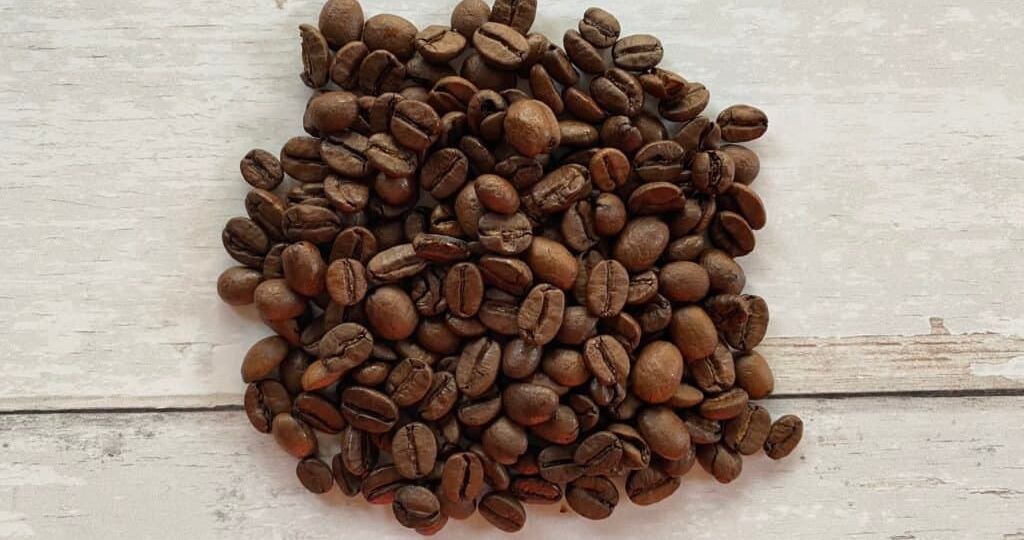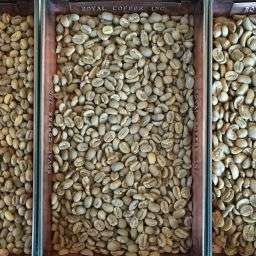
The freshness of coffee beans is pivotal not only for the flavor profile of your brew but also for maintaining its health benefits. Fresh beans ensure a vibrant, aromatic cup of coffee, rich in antioxidants. Over time, coffee beans undergo a natural aging process, during which they lose moisture and their essential oils begin to evaporate. This degradation affects the taste and can diminish the healthful properties of the coffee.
Can Old Coffee Beans Make You Sick?
The primary concern revolves around whether the consumption of old coffee beans can lead to health issues. While old coffee beans themselves may not spoil like perishable food, improper storage leading to mold or bacterial growth poses potential health risks. This segment sets the stage for an exploration into how the storage, age, and condition of coffee beans can impact their safety and quality.
How Long Do Coffee Beans Last?
The shelf life of coffee beans varies significantly between whole beans and ground coffee. Whole beans can maintain their freshness for several months when stored properly, while ground coffee tends to lose its flavor and aroma more quickly due to a larger surface area exposed to oxygen and moisture. Proper storage conditions, away from light, heat, and moisture, can significantly extend the longevity of coffee beans.
Signs of Old or Bad Coffee Beans
Determining whether coffee beans have gone bad involves a few sensory indicators: visual, olfactory, and taste. Fresh beans should be glossy, indicating a coating of natural oils that contribute to the coffee’s flavor profile. Old or bad beans may appear dull and lack this sheen, signaling a loss of essential oils.
A musty or off smell is another red flag, as fresh coffee beans should have a pleasant, robust aroma. Finally, if the brewed coffee tastes sour, bitter, or just off, it’s likely the beans have gone stale or are otherwise compromised.
Direct Health Risks from Consuming Old Coffee Beans
The consumption of old coffee beans can pose health risks, particularly when they become a breeding ground for mold, bacteria, and the production of mycotoxins. Mold can develop on coffee beans stored in damp conditions, leading to the production of harmful mycotoxins, such as Ochratoxin A (OTA), which is resistant to high temperatures and can survive the brewing process.
Ingesting moldy coffee beans may result in symptoms ranging from nausea and vomiting to more severe reactions like abdominal pain, diarrhea, and in extreme cases, fever and respiratory issues.
Can You Get Sick from Drinking Old Brewed Coffee?
Old brewed coffee, especially when left at room temperature for extended periods, can become a harbor for bacteria growth. While freshly brewed coffee has a limited shelf life of around 30 minutes before its quality degrades, consuming coffee that has been sitting out for longer does not typically pose serious health risks if it has been stored properly.
However, the quality and taste will significantly diminish. Proper storage, such as refrigeration in an airtight container, can extend its safe consumption window but vigilance is recommended to avoid potential health issues.
Proper Storage to Extend Shelf Life
Extending the shelf life of coffee beans and ensuring their freshness requires appropriate storage techniques. For whole beans, an airtight container in a cool, dark place is ideal. This method also applies to ground coffee and coffee pods, although ground coffee has a shorter freshness span due to its increased surface area exposed to air. Preventing exposure to air, moisture, and light is crucial for maintaining the beans’ quality and preventing mold and bacteria growth.
The Role of Containers and Environment in Coffee Storage
The choice of storage container and environment plays a significant role in preserving coffee beans’ freshness. Airtight containers prevent oxygen from degrading the beans and protect them from absorbing odors or moisture that could lead to mold formation. Storing coffee in a cool, dry place away from direct sunlight further safeguards against the loss of flavor and the risk of contamination.
Avoiding the refrigerator is advised due to the risk of condensation and odor absorption, while the freezer can be used for long-term storage if the beans are sealed properly.
Ensuring the safety and enjoyment of your coffee starts with proper storage to maintain freshness and prevent health risks associated with old or improperly stored coffee beans.
FAQs
Can Expired Coffee Still Be Consumed Safely?
Coffee doesn’t spoil in the traditional sense but it does have a “best before” date, which primarily indicates when it will start to lose its peak flavor. Consuming coffee past this date is generally safe as long as it hasn’t been contaminated by moisture or mold. However, the taste and aromatic quality may significantly decline.
Symptoms to Watch Out For After Consuming Old Coffee
After consuming old or improperly stored coffee, be alert for symptoms such as nausea, vomiting, abdominal discomfort, or diarrhea. These symptoms could indicate the presence of mold or bacteria in the coffee. If you experience any severe or prolonged symptoms, seeking medical advice is recommended.
Can Old Coffee Cause Food Poisoning?
Yes, if coffee beans are moldy or have been contaminated with harmful bacteria, consuming them can lead to food poisoning. Proper storage and handling of coffee beans are crucial to minimize this risk.
Creative Uses for Old Coffee Beans
Old coffee beans, while not ideal for brewing, can be repurposed in several ways. They can be used as a natural deodorizer, in compost for gardening, or even as a scrub for household cleaning. These uses allow you to utilize old beans without wasting them.
When to Discard Old Coffee Beans
It’s time to discard coffee beans if they show signs of mold, have a strange odor, or if the packaging has been compromised. Prioritizing health and safety is crucial, so when in doubt, throw them out.
Conclusion
Understanding the importance of freshness, recognizing the signs of deterioration, and employing proper storage methods are essential for maintaining the quality and safety of coffee beans. These practices ensure that you can enjoy your coffee without compromising on flavor or health.
Final Thoughts on Consuming Old Coffee Beans
While old coffee beans may not always pose a health risk, their diminished flavor profile and potential for contamination highlight the importance of freshness. Balancing the enjoyment of coffee with these considerations ensures both satisfaction and well-being. Prioritize proper storage and be mindful of the signs that indicate it’s time to refresh your coffee supply.









